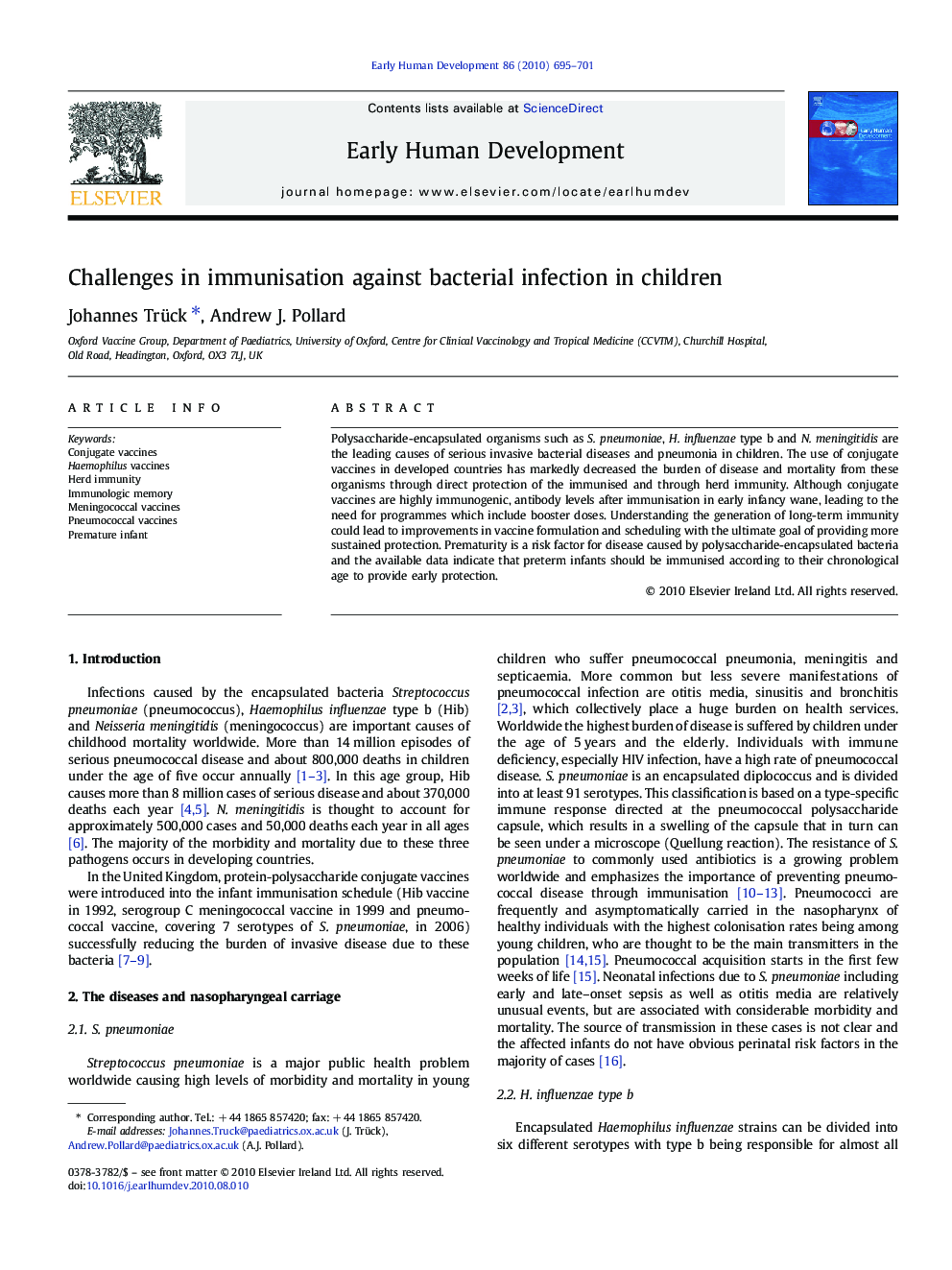| Article ID | Journal | Published Year | Pages | File Type |
|---|---|---|---|---|
| 3917411 | Early Human Development | 2010 | 7 Pages |
Polysaccharide-encapsulated organisms such as S. pneumoniae, H. influenzae type b and N. meningitidis are the leading causes of serious invasive bacterial diseases and pneumonia in children. The use of conjugate vaccines in developed countries has markedly decreased the burden of disease and mortality from these organisms through direct protection of the immunised and through herd immunity. Although conjugate vaccines are highly immunogenic, antibody levels after immunisation in early infancy wane, leading to the need for programmes which include booster doses. Understanding the generation of long-term immunity could lead to improvements in vaccine formulation and scheduling with the ultimate goal of providing more sustained protection. Prematurity is a risk factor for disease caused by polysaccharide-encapsulated bacteria and the available data indicate that preterm infants should be immunised according to their chronological age to provide early protection.
